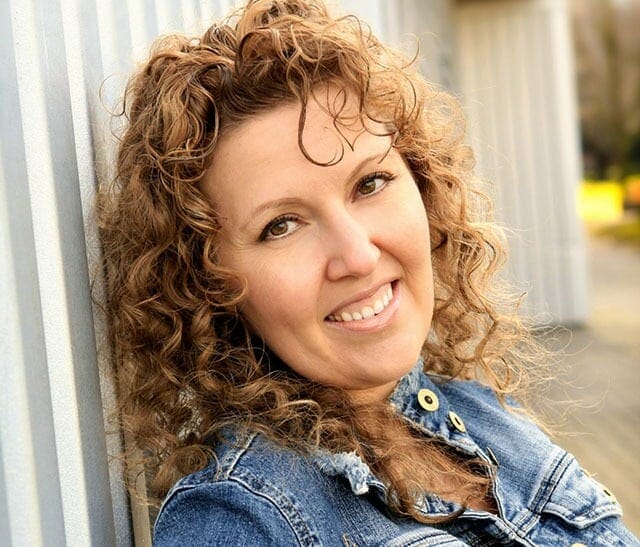[quote style=”boxed”]Writing every day, whether I feel like it or not.[/quote]
Denise Jaden’s novels have been shortlisted or received awards through the Romance Writers of America, Inspy, and SCBWI. The first draft of her debut novel, Losing Faith (Simon & Schuster), was written in 21 days during NaNoWriMo 2007. Her second published novel (written first), Never Enough (Simon & Schuster), took about eight years longer. Her first non-fiction book for writers, Writing With A Heavy Heart: Using Grief and Loss to Stretch Your Fiction, includes a variety of clear guidance and practical exercises to help writers get to the heart of their stories. Her second non-fiction book, Fast Fiction (New World Library – 2014) includes tips on constructing a story plan that works, as well as daily inspiration to keep writers writing, regardless of when the mood strikes.
Denise spends most of her time homeschooling her young son (who is also a fast-drafter of fiction) and dancing with a professional Polynesian dance troupe. She lives with her family just outside Vancouver, Canada. Find out more about her and her writing on her website at www.denisejaden.com or on twitter @denisejaden.
Where did the idea for your latest book, Fast Fiction, come from?
I have been taking part in NaNoWriMo, or National Novel Writing Month, since 2007. The goal is to write a 50,000-word novel in 30 days. While I’ve completed this goal each year, I’ve come up with lots of tips and tricks and ways of motivating myself to make the process easier. Since almost everyone I talk to has a book idea and just hasn’t gotten around to writing their book, I thought this guide could be helpful for a lot of people.
What does your typical day look like?
I spend the mornings on a balancing act between home-schooling my son and trying to get some writing done. I also do my best to get to the gym early in the day. The afternoons and evenings are filled with commitments such as bookkeeping, judo, and teaching dance classes.
How do you bring ideas to life?
It’s different for every book, but for my fiction I tend to spend a lot of time with character development, completing exercises and speed drills in order to make sure they are fully-formed. When it comes to non-fiction, I generally keep a document on my phone that I’m always adding to, in order to try to streamline my ideas and form them into a cohesive structure.
What’s one trend that really excites you?
I love the growing interaction between authors and readers via social media. It’s so satisfying to me to open Twitter and find some new tweets from people who have connected with my books.
What is one habit of yours that makes you more productive as an entrepreneur?
Writing every day, whether I feel like it or not. I firmly believe that if you only write when you feel “on,” then you’re only really drawing ideas from your conscious practical mind. The best ideas often arise from tuning into your subconscious and finding the connections between ideas. That means pushing through on the work and digging deep for solutions when they’re not obvious.
What was the worst job you ever had and what did you learn from it?
The worst job was probably inserting flyers into newspapers. During this season in my life, I learned to make use of my mind and let my creative ideas go wild as I had to keep doing something mundane with my body.
If you were to start again, what would you do differently?
I honestly can’t think of anything. I’ve really enjoyed the process of becoming an author and have met some great and helpful people to learn from along the way. Sure, I’ve made mistakes, but in the end they have helped me so much that I wouldn’t change them.
As an entrepreneur, what is the one thing you do over and over and recommend everyone else do?
I constantly try to use my creative mind to find the best solutions in all areas of my life, from home-schooling to dance instruction to writing.
What is one failure you had as an entrepreneur, and how did you overcome it?
I don’t know if I’d call it a failure, but I did one book signing at a bookstore where no one attended. I used the time to visit with a writer friend I’d brought along, but if I did it again, I’d probably spend more time visiting with the bookstore manager.
What is one business idea that you’re willing to give away to our readers?
I think organic restaurants are the next big thing. Whole Foods’ stocks have been skyrocketing for a while now. People want to eat better, and I think an organic fast food joint would do really really well. Perhaps there are already places like this, but not in my area.
Tell us something about you that very few people know?
I am terribly afraid of heights, and one of the things I’m most afraid of is skydiving, yet I have this deep-seated feeling that I will have to try it one day.
What software and web services do you use? What do you love about them?
I use Microsoft Word for general writing, Photoshop for graphic design, and Scrivener for organizing early drafts of novels. I also have an app on my iPhone called A Novel Idea, which has been useful.
What is the one book that you recommend our community should read and why?
For writers—Save the Cat! By Blake Snyder. It’s the best guide I know of for storytelling, and puts it into understandable and accomplishable language.
What people have influenced your thinking and might be of interest to others?
Hank and John Green have a great YouTube channel )
Connect:
Twitter: @denisejaden
Mario Schulzke is the Founder of ideamensch, which he started a decade ago to learn from entrepreneurs and give them a platform for their ideas.

